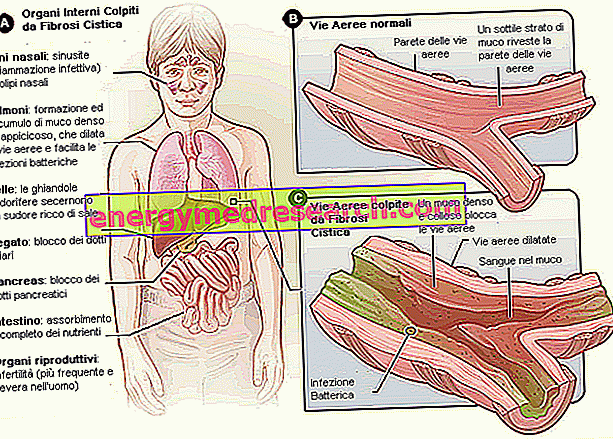What is that
The anesthetic cream is a type of medicine formulated with active ingredients able to exert a local anesthetic action, in order to avoid the perception of pain, burning or itching. These symptoms can derive from some medical procedures, diagnostic tests or aesthetic treatments, or they can occur due to causes of various origins and nature.

Indications
What is anesthetic cream used for?
The anesthetic cream is used precisely to anesthetize a specific area of skin or mucosa in case of:
- Medical procedures and diagnostic tests (blood sampling, superficial surgical procedures, introduction and positioning of venous and urethral catheters, urethral examinations, endoscopic and instrumental urological maneuvers, etc.);
- Dermo-aesthetic treatments (dermabrasion, microdermabrasion, filler making, etc.)
- Pain and burning caused by burns ;
- Vulvar and perianal itching ;
- Performing tattoos .
Warning!
Regardless of the reason for which it is necessary to apply an anesthetic cream, it is good to remember that this must be used only on intact skin and mucous membranes .
Active principles
What active ingredients does an anesthetizing cream contain?
As mentioned, an anesthetic cream is a medicine containing active ingredients with local anesthetic action. This means that - when applied topically - they are able to induce localized anesthesia in the area where they were administered.
Among the active ingredients mostly used, we mention lidocaine (Vagisil®, Emla®, Luan®), prilocaine (Emla®) and benzocaine (Foille Scottature®, Foille Sole®).
Depending on the use for which the anesthetizing creams are intended, other types of active ingredients may also be present in association with the aforementioned local anesthetics.
Curiosity
Local anesthetics are also included in the composition of medicines used to counter premature ejaculation. In these cases, however, the drugs in question are not formulated as creams, but rather as anesthetic sprays (Fortacin®).
How it works
How Does Anesthetizing Cream Work?
The active ingredients contained in the anesthetic cream are able to perform their action by binding to the voltage-dependent sodium channels, preventing this ion from entering the nerve cells and, consequently, preventing excitation. In doing so, these cells can no longer conduct nerve impulses. A local anesthetic action is thus obtained which prevents the patient from feeling pain, burning and itching.
Side effects
Like any drug, even an anesthetic cream can cause side effects, although not all individuals experience them. In fact, the possibility of developing secondary effects and the intensity with which these can occur depend on the sensitivity of each subject to the same drug.
However, the possible side effects that may occur following the use of an anesthetic cream are usually local. Among these we find:
- Redness;
- Sensation of heat, itching and / or burning immediately after application;
- Edema.
However, in the case of improper or incorrect use of the drug (for example, application on open wounds, therefore on damaged skin and mucous membranes, or use of excessive amounts of product), adverse affects can also occur at a systemic level. Fortunately, this occurrence can easily be avoided by reading the information contained in the package insert of the medicine and / or asking for advice from your doctor or pharmacist.
Finally, although rarely, the application of an anesthetic cream could cause allergic reactions in sensitive individuals.
Pregnancy and breastfeeding
Can the Anesthetizing Cream be used during pregnancy and during breastfeeding?
In principle, as a precautionary measure, the use of anesthetizing cream during pregnancy and lactation is not recommended.
However, in cases where the use of this medicine is absolutely necessary, the doctor may also consent to its use in this category of patients, provided that the use of the drug takes place only under its strict control.
Contraindications
The main contraindication to the use of the anesthetic cream relates to the known hypersensitivity to any of its components (active ingredients or excipients).
Furthermore, let us recall again that the aforementioned medicine must not be used on injured skin and mucous membranes.
In any case - although for some types of anesthetic cream the medical prescription is not necessary - before using such a product it is always good to ask your doctor for advice, in order to identify the presence of any contraindications or potential risks for the patient.



